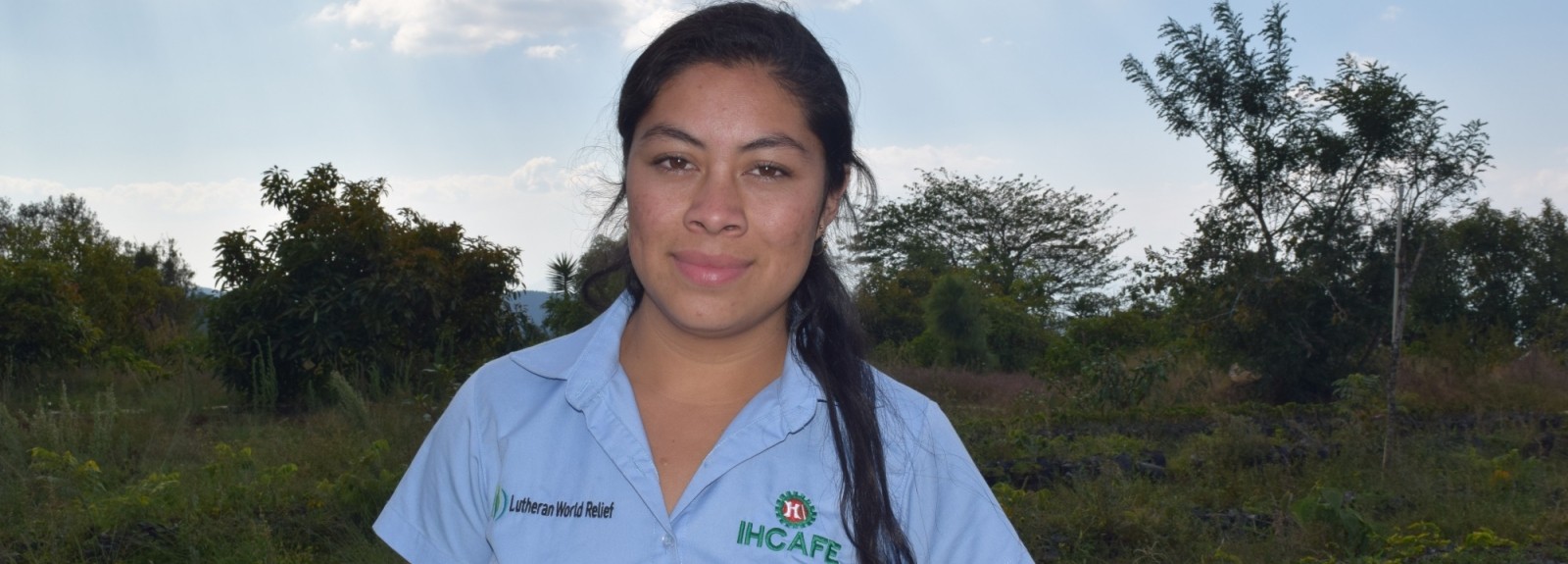Honduras is the world’s fifth largest producer of coffee in volume. Despite their claim on the global market, many Honduran farmers face challenges in maximizing their coffee yield, obtaining a fair price and meeting their families’ basic needs.
They are also aging. Many young people have concluded that small-scale coffee cultivation does not provide a stable livelihood. The volatility of international prices — with the price of coffee falling below $1 a pound — and the impacts of climate change on crops have contributed to growing fears about job security through coffee production. Increasingly, young people are leaving coffee communities in hopes of better opportunities in urban centers.
But thanks you to, some young people opting to stay and, with Lutheran World Relief’s support, they are establishing themselves as their community’s next generation of specialty coffee farmers.
One such farmer is Dilcia Vazquez.
Dilcia is from San Andres, a coffee-growing municipality in Lempira Department in western Honduras. She comes from a coffee-growing family. “My parents taught me and my siblings to love the land,” she says. “And now I love it as my parents do.”
Dilcia says longs to see the coffee sector thrive in San Andres and generate employment opportunities for her and her peers. But in recent months she has seen many youths head off to urban areas in search of what they see as more stable income opportunities.

One reason some youth are hesitant to become the next generation of farmers is that they feel they lack the relevant skills. Lutheran World Relief is addressing this gap by providing a broad range of technical training so young farmers can be better positioned to benefit from the coffee industry. Students are learning about improved cultivation techniques and how to use technology, such as the CafeMovil app, which provides instant access to an online toolbox of coffee cultivation manuals that supplies in-depth responses to coffee farming questions.
Additionally, young men and women are training to be baristas and cuppers, opening up the horizons for engagement in other aspects of the coffee sector. Those with an entrepreneurial streak are being encouraged to explore opportunities beyond hands-on farming. Some of the program’s graduates are working on establishing commercial coffee nurseries, while another group is making and marketing organic fertilizer. And Lutheran World Relief is linking young men and women to other enterprises associated with the coffee sector and helping them secure those jobs by building their soft skills such as communication and job interview techniques.
Dilcia had the opportunity to participate in the training sessions, and that led to a job as head of administration at her local coffee producers’ association. This employment provides her a steady source of income to complement the money she makes from coffee sales. She has also gone from being the novice to the expert in the family and now advises her parents with the new information she has at her finger tips.
Dilcia’s main aspiration is to contribute to maintaining high-quality coffee in San Andres over the long term as means of sustaining the coffee sector. For this to happen, she and others like her who have been trained through the project see the need for a change in attitudes regarding farm management, with more focus on sustainability. She also wants to see improvement in the quality of on-farm production and good marketing strategies, as well as developing negotiation techniques to be able to sit at the table with buyers, especially in the international market.
Now, she says, there are more opportunities for her and other young people. They see a future for themselves in Honduras.
“When young people are trained, they have greater and better opportunities within their own area and then they are less likely to leave the area and their farms,” she says. “Honduras is a land rich in resources. We can fulfill our American dream in our beloved Honduras.”


